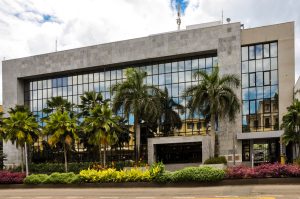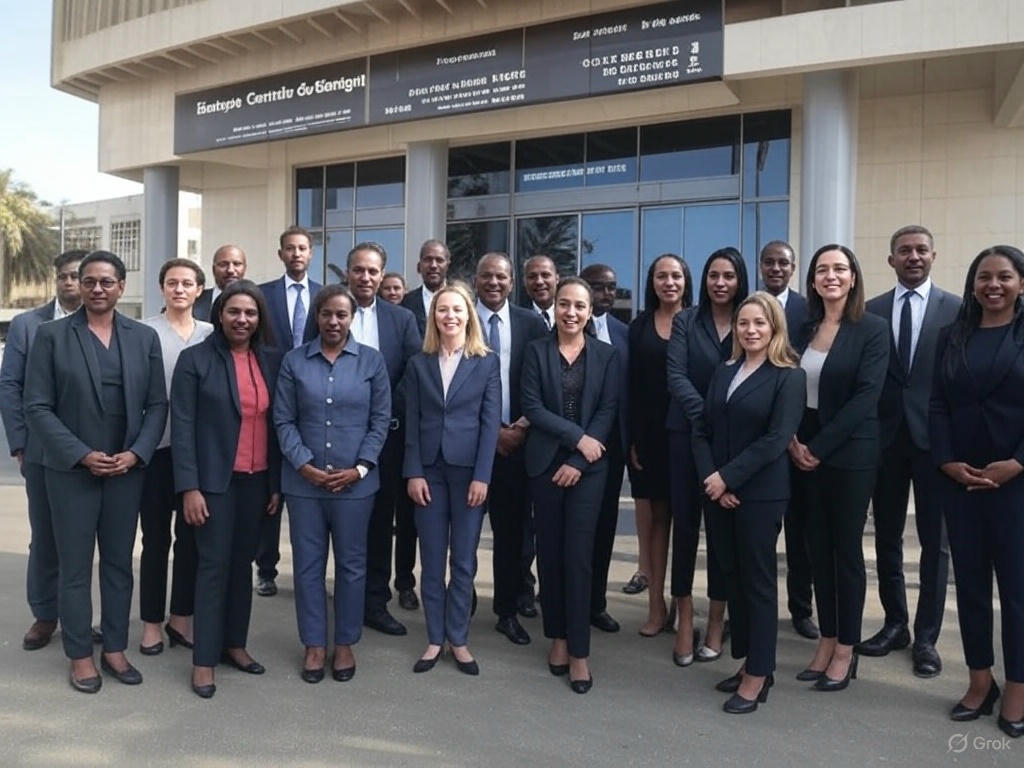Washington, DC – December 9, 2024: The International Monetary Fund (IMF) Executive Board has completed the third reviews of Seychelles’ economic performance under the Extended Fund Facility (EFF) and the Resilience and Sustainability Facility (RSF). This approval enables the immediate disbursement of approximately $12.1 million to strengthen Seychelles’ macroeconomic stability, boost growth, and enhance fiscal and monetary policies. The funds will also support the country’s climate resilience and catalyze financing for climate-related investments.

CBS building
Economic Challenges and Performance
Seychelles’ economic growth has slowed in 2024 due to reduced tourist arrivals and spending, as well as lower tuna production targets. Inflation, which had been negative at the start of the year, rose to 0.6% by September, driven by increased utility tariffs. Despite these challenges, fiscal performance exceeded expectations, with robust tax collection and higher-than-targeted foreign exchange reserve accumulation.
Gross international reserves reached $754 million by August, providing a cushion of 3.5 months of import cover. While a wider current account deficit is anticipated by year-end, the country remains on track with its fiscal and structural reform goals under the IMF programs.
Structural Reforms and Climate Goals
Seychelles has achieved significant progress under the EFF and RSF programs. All quantitative targets for June 2024 and most structural benchmarks have been met. Notably, the National Climate Finance Strategy was implemented with only a slight delay. However, three reform measures have been adjusted, with two extended to 2025 due to capacity constraints.
These reforms aim to bolster Seychelles’ climate resilience by integrating climate considerations into budgetary processes, enhancing public investment, and improving financial sector supervision to address climate risks.
Stable Outlook Amid Risks
The IMF projects Seychelles’ GDP growth at 4.3% in 2025, stabilizing at around 3.5% in subsequent years. Inflation is expected to average 2.3% in 2025, while the current account deficit is forecast to hover around 9% of GDP over the medium term.
Risks to this outlook include global economic uncertainty, climate change, and potential disruptions to the tourism sector. Nevertheless, ongoing reforms and the IMF’s support are expected to mitigate these challenges and sustain progress.
IMF Statement
IMF Deputy Managing Director Bo Li praised Seychelles’ progress, stating:
“Seychelles continues to demonstrate sound macroeconomic management and progress on structural reforms, despite external challenges and intensifying climate shocks. The IMF’s EFF and RSF arrangements will bolster the country’s fiscal and external buffers while supporting inclusive growth and climate resilience.”
The IMF emphasized the importance of fiscal consolidation, efficient public spending, and continued structural reforms to reduce public debt and support climate adaptation and mitigation efforts.
Focus on Sustainability
Looking ahead, Seychelles is set to prioritize economic diversification, enhance social protection, and invest in human capital. Strengthened climate-related financial systems and public financial management will also be central to the country’s reform agenda, ensuring resilience to external and environmental shocks.
With the IMF’s continued support, Seychelles is poised to build a more sustainable and inclusive economy, aligning its growth trajectory with global climate goals.




